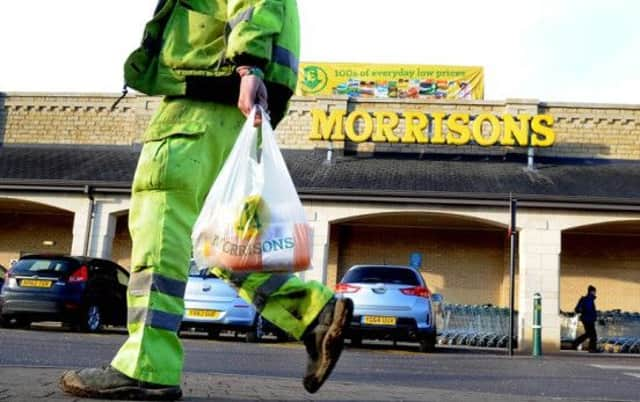Blackfriar: Do foreign buyers really want a slice of UK supermarkets?


Respected trade magazine Retail Week reported that senior grocery analyst Mike Dennis at Cantor Fitzgerald believes the two supermarket chains could attract the attention of overseas players and private equity firms.
Mr Dennis said the new bosses at the two chains could support a return to private ownership as their strategies could “be better carried out under a private holding”.
Advertisement
Hide AdAdvertisement
Hide AdTesco (which is seen as too big for a foreign rival to assimilate), Sainsbury’s and Morrisons are all struggling under the public glare at a time when German discount rivals are stealing their customers.
In contrast Asda has the protection of its parent company, the world’s biggest retailer Wal-Mart.
As long as Asda keeps ringing up the profits, US giant Wal-Mart is happy to turn a blind eye to an eye-watering 4.7 per cent fall in recent second quarter like-for-like sales.
Mr Dennis said: “I can’t help but notice Morrisons’ share price now is a market cap of £3.8bn and a total market value – if you include pension deficits and debt – of about £6bn. Sainsbury’s is about £4.8bn market cap and £7.6bn.
Advertisement
Hide AdAdvertisement
Hide Ad“You have to say in the last 20 years, these companies are now down to their lowest levels in comparison to their sales and square footage. In my view, they look quite vulnerable.
“Some of the solutions that are required in this industry would probably be better carried out under a private holding than as a public company.”
Both Morrisons and Sainsbury’s are sitting on valuable freehold assets, which would make them attractive to buyers.
But this isn’t the first time takeover rumours have circled around Morrisons and Sainsbury’s.
Advertisement
Hide AdAdvertisement
Hide AdBut the question that needs to be asked amid the speculation is who would want to take on a British supermarket in the current cut-throat climate?
Mass retailing is hardly an area that has great prospects for growth.
Consumers are beginning to spend more amid growing economic confidence, but they’re spending on eating out, holidays and new cars, not on the weekly shop.
Customers have become accustomed to the new norm of not wasting food and spending frugally in the supermarket and there are no signs this will change.
Advertisement
Hide AdAdvertisement
Hide AdAdd to this the fact that UK supermarkets are among the most sophisticated in the world.
Wal-Mart has turned to Asda’s expertise when it comes to price matching and click and collect. It is British know-how that is modernising the world’s biggest retailer.
What foreign buyer would be able to compete in such a sophisticated market?
These takeover rumours come and go, but it would take a very brave, or foolhardy buyer, to step into such a competitive market.
Advertisement
Hide AdAdvertisement
Hide AdMorrisons shareholders will be relieved to hear the embattled supermarket chain has once again avoided relegation from the FTSE 100 list of leading companies in the latest quarterly reshuffle.
The Bradford-based retailer had been gearing up for the news that a decline in sales and profits had led to its relegation from the top flight after more than 14 years.
Morrisons lies just outside the FTSE 100, but it is far better placed than engineer Weir Group which is ranked well below after its share price fell nearly 50 per cent over the past year on the back of falling demand from the oil and gas sector.
London Stock Exchange said Weir will be demoted to the FTSE 250 list while housebuilder Berkeley will now be promoted to the FTSE 100 following a rosy time for the housebuilding sector.
It’s good news for Morrisons’ shareholders as FTSE 100 constituents are automatically included in tracker funds held by insurance and other investment companies.